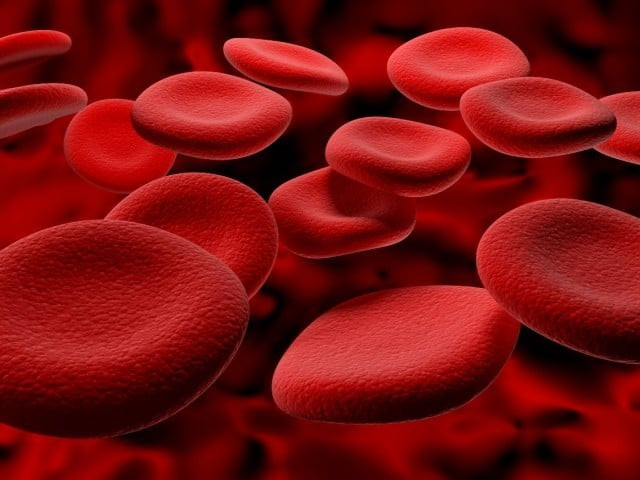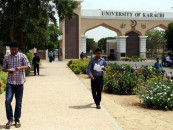For thalassaemiac Afifa, ‘Bombay’ blood is a lifeline
Wajahat Ayaz’s seven-year-old daughter needs two packs of rare blood type every month.

For thalassaemiac Afifa, ‘Bombay’ blood is a lifeline
Wajahat Ayaz’s only daughter, Afifa, is thalassaemiac and needs two packs of blood every month. But she has much bigger problems unlike other patients with the disease. The seven-year-old girl’s blood type is one of the rarest groups in the world – the hh blood group or more commonly known as the ‘Bombay’ phenotype.
The ‘Bombay’ group was identified 60 years ago and was named after the city in which it was first discovered. This blood type reacts with all normal ABO blood types (i.e., groups O, A, B, and AB) and has a reported frequency of one in 10,000 individuals in India, and one in a million people in Europe. There is no ill-effect in belonging to this rare group, but if ever a blood transfusion is needed, finding another person with the same blood type can be a hassle.
In Karachi, only seven people are known to have the Bombay blood type and were identified after the meticulous efforts of Ayaz and his sympathisers. According to the Husaini Blood Bank, there are only 14 people in Pakistan having the hh blood group.
Caught in the middle
Afifa’s father told The Express Tribune that only two ‘Bombay’ donors were known in the country when his daughter was diagnosed with thalassaemia in 2008. About a month ago, Ayaz was relieved to find another donor of the rare blood required for his daughter.
“No donor has ever asked for money despite the value of their blood,” Ayaz said. “Three of them come back from the US and Dubai every year only to donate blood.”
Dr Saqib Ansari, a haematologist at National Institute of Blood Diseases, explained that the presence or absence of A, B and Rh antigens (markers) alone is tested at most laboratories. Since the Bombay group does not have either A or B antigens, it is usually mistaken for the O blood group. “[But] only a specific test for the H antigen can help differentiate between the O and Bombay blood group,” he said.
The odds of finding someone with this blood type are the highest in India. Geneticists believe that its high incidence there is the result of constant marriages among people of the same ancestors.
Dr Ansari thinks that Afifa is the only known thalassaemiac patient with the rare blood type and should get a bone marrow transplant as soon as possible. “If Afifa gets her mother’s bone marrow, it will cure her thalassaemia,” he said. “But the procedure is a high-risk one as she doesn’t have any siblings and her mother’s bone marrow is only a 50 per cent match.”
However, Ayaz is held back by the little girl’s poor health and a sum of Rs4 million required for the transplant.
Other blood types
A patient with a history of anaemia visited the Aga Khan University Hospital. When she was tested for her blood type, she was found to have the ‘Rhnull’ blood type, said Dr Bushra Moiz, a haematology professor at the institution.
Laboratories in Pakistan only have kits to identify the normal blood groups, ABO, and Rh. For a detailed blood analysis ‘reverse screening’ is needed. A complete profile requires an anti-sera, commercially available for around Rs3,000 a vial in Pakistan.
Similarly, many other patients with other rare blood groups have been identified accidentally, only when the need for transfusion or donation arises. Apart from the uncommon blood groups, including Rhesus negative types, AB -ve and O –ve, some other rare blood types such as para-Bombay, A2B and Rhnull have also been reported in Pakistan.
This is in contrast to the developed countries where a complete blood profile is carried out at the time of birth, which usually comes handy in medical emergencies.
Published in The Express Tribune, June 18th, 2012.



















COMMENTS
Comments are moderated and generally will be posted if they are on-topic and not abusive.
For more information, please see our Comments FAQ